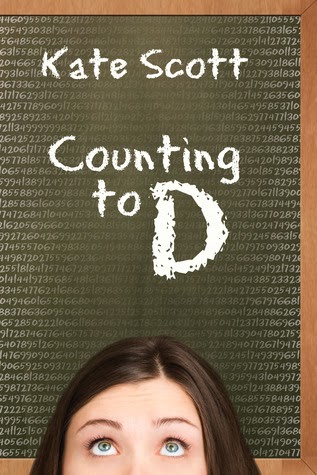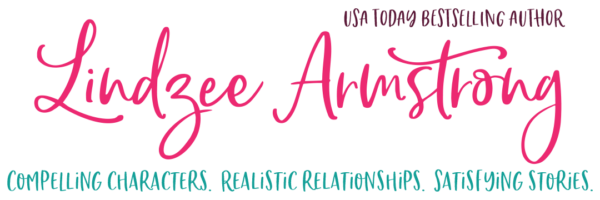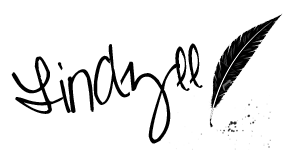I am so pleased to have Kate Scott here, author of Counting to D, with a guest post on beginnings. Keep reading…she’s got some good advice for aspiring writers! Kate’s first novel, Counting to D, was just released this month. It is an awesome story about a teen girl struggling with dyslexia that I think really needed to be told (you can read my review of it here). Buy links at the bottom of the post! And without further ado, Ms. Scott! Thank you so much for visiting my little corner of the blogosphere. 🙂
Where to Begin
by Kate Scott
Beginnings are important. Every writer knows that. If you can’t hook a reader on the first page, they won’t read the second page. Beginnings are important in life, too, not just in fiction. So today, instead of talking about the beginning of my story, I’m going to talk about the beginning of my writing.
 I’ve always had an active imagination, and I enjoyed making up stories as a child. But I didn’t cognitively think about writing as a serious pursuit until after I got my first real job. For my day job, I’m a civil engineer. I enjoy engineering, and I have had the opportunity to work on some very interesting projects. But as a newbie, my job was basically to sit in a cubical and do algebra for eight hours a day. It got a bit monotonous. So I decided to let myself become more well-rounded and write novels during my evenings and weekends.
I’ve always had an active imagination, and I enjoyed making up stories as a child. But I didn’t cognitively think about writing as a serious pursuit until after I got my first real job. For my day job, I’m a civil engineer. I enjoy engineering, and I have had the opportunity to work on some very interesting projects. But as a newbie, my job was basically to sit in a cubical and do algebra for eight hours a day. It got a bit monotonous. So I decided to let myself become more well-rounded and write novels during my evenings and weekends.Starting out as a writer, I didn’t know anything. I got a couple of books about writing, the classics everyone raves about: On Writing by Stephen King and Bird by Bird by Anne Lamott. Stephen and Anne are great fiction writers, but not even they can make a book about how to write interesting to me. Books about sentence mechanics and story structure will never interest me. So I came up with a new strategy to learn how to write fiction: I read fiction.
I listened to a lot of fiction, too. One of the great things about sitting in a cubical doing algebra all day was that I could listen to audiobooks while I was at work. During that first year on my path to author-dom, I wrote a very crappy first draft of a novel nobody will ever want to read, but I listened to more than 150 books people do want to read.
I paid attention to what I liked in all of my favorite books. I thought about character development and story arc, and I admitted to myself that my own writing wasn’t good enough yet. I attended local writing workshops, started a blog, and connected with other aspiring writers who lived farther afield. I swapped manuscripts with other writers and discovered I enjoyed picking apart their stories’ problems.
So then, I went back and picked apart my own story. One of the curses of being an artist is that most artists have very good taste. I’m a very critical reader, and I don’t recommend books lightly. I have good taste, and I knew my early writing wasn’t very good. A few of my first readers praised it. I’m sure they were trying to be nice and attempting to encourage me to keep going. Though my writing was still rough, I had some natural talent. But instead of appreciating that feedback, I assumed all those supportive readers had very bad taste. My early writing was simply not good.
Counting to D is the first book I’ve ever liked after I finished writing it. It isn’t the first book I wrote, and it isn’t the last book I wrote. I penned a few crappy novels before Sam moved into my psyche, and I’ve trashed a few attempted novels that I wrote after completing Counting to D—because I knew they didn’t measure up.
So far, Counting to D has gotten a mix of good and very good reviews. I know everyone has different preferences, and I can’t expect everyone who reads it to love it. But nobody has hated it yet. I don’t think the positive response has much to do with the quality of my writing. I’ve written a lot of very bad fiction. I think it has to do with the quality of my ego, or lack thereof. I have read a lot of books in my life, and I’ve listened to even more. I know good writing when I see it, and I know bad writing when I see it. I even know when that bad writing is my own.
Every writer has a different process. Some people revere Strunk & White’s The Elements of Style like it’s holy scripture. Other people study creative writing in college and/or graduate school. Me, I’m just an engineer with an active imagination who really likes stories. As for my advice to other aspiring writers—read, or listen, or absorb books in whatever form they present themselves to you. You can do all the other stuff, too, but if you can’t recognize and enjoy a great book written by somebody else, how are you going to know when you’ve written one yourself?
Back Cover Blurb
The kids at Sam’s school never knew if they should make fun of her for being too smart or too dumb. That’s what it means to be dyslexic, smart, and illiterate. Sam is sick of it. So when her mom gets a job in a faraway city, Sam decides not to tell anyone about her little illiteracy problem. Without her paradox of a reputation, she falls in with a new group of highly competitive friends who call themselves the Brain Trust. When she meets Nate, her charming valedictorian lab partner, she declares her new reality perfect. But in order to keep it that way, she has to keep her learning disability a secret. The books are stacked against her and so are the lies. Sam’s got to get the grades, get the guy, and get it straight—without being able to read.
Buy Links
Social Media Links

